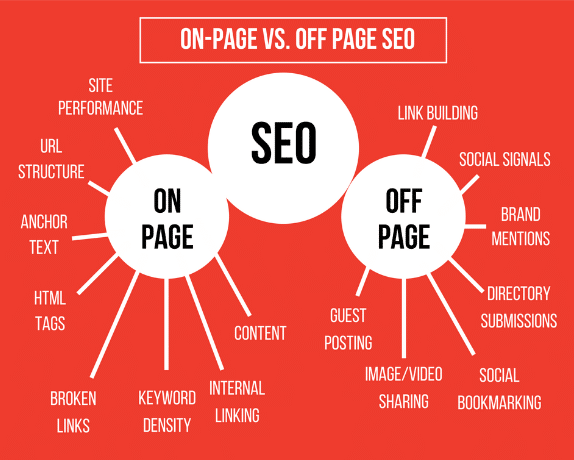Uncover the mystery of SEO: Does it really work? Discover the power of organic search and its impact on website traffic.

Image courtesy of via DALL-E 3
Table of Contents
Introduction: What is SEO?
Search Engine Optimization, or SEO, is like a magic spell that helps websites become more visible on the internet. Just like how you search for things using Google, SEO helps websites show up when people search for something online. It’s all about making sure your website is easy to find when someone is looking for information. Let’s dive into what SEO is all about and why it’s so important for websites and businesses.
Defining SEO
SEO stands for Search Engine Optimization. It’s a fancy way of saying that we help websites get noticed on search engines like Google. When you search for something on Google, it shows you a list of websites that match what you’re looking for. SEO helps websites be at the top of that list, so more people can see them.
Importance of SEO
SEO is crucial for websites and businesses because it helps them reach more people. Imagine you have a lemonade stand, but it’s hidden in a forest where no one can see it. SEO is like putting up signs and arrows that guide people to your stand so they can enjoy your delicious lemonade. Without SEO, it’s like having the best lemonade in the world but nobody knows where to find it!
How Search Engines Work
Search engines are like giant libraries on the internet that help people find information. When you type something into a search engine like Google, it looks through all the websites on the internet to find the most relevant ones that match your search.
How Do They Rank Pages?
Search engines use special programs called algorithms to decide which websites should show up first in search results. These algorithms consider many factors like the quality of the content, how often the website is updated, and how many other websites link to it.
Keywords: The Building Blocks of SEO
In the world of SEO, keywords are like the secret code that helps search engines like Google understand what your website is all about. These are specific words or phrases that people type into search engines when looking for information. By using the right keywords on your website, you can help search engines match your content with what people are searching for.

Image courtesy of infographicworld.com via Google Images
How to Choose Good Keywords
Choosing the right keywords is key to successful SEO. Here are some tips to help you select effective keywords:
1. Think like your audience: Consider what words or phrases your target audience would use to find your content.
2. Use tools: There are tools available, like Google Keyword Planner, that can help you discover popular keywords relevant to your content.
3. Be specific: Instead of targeting broad keywords, focus on specific terms that are highly relevant to your content.
4. Monitor and adjust: Keep an eye on how well your chosen keywords are performing and make adjustments as needed to improve your SEO results.
On-Page SEO: Making Your Pages Search-Friendly
One of the most important things you can do to make your website search-friendly is to create high-quality content. That means writing articles, blog posts, or other information that is helpful, informative, and relevant to your readers. Search engines like Google love websites that provide valuable content to users, so make sure to focus on creating content that your audience will find useful.
Title Tags and Meta Descriptions
Title tags and meta descriptions are crucial elements of on-page SEO. Title tags are the clickable headlines that appear in search engine results, while meta descriptions are brief summaries of what a web page is about. It’s essential to write compelling title tags and meta descriptions that accurately reflect the content on your page to attract more clicks from searchers. Including relevant keywords in these elements can also help improve your page’s visibility in search results.
Using Images Effectively
Images play a significant role in making your web pages search-friendly. When adding images to your website, be sure to use descriptive filenames and alt text that includes relevant keywords. This helps search engines understand what your images are about and can improve your site’s overall SEO. Additionally, make sure to optimize your images for faster loading times, as site speed is another crucial factor that search engines consider when ranking pages.
Off-Page SEO: Building Your Website’s Reputation
Backlinks are like word-of-mouth referrals in the online world. They are links from other websites that point back to your site. Think of it as a vote of confidence from one website to another. The more backlinks your website has from reputable sources, the more search engines see your site as credible and trustworthy. This can help boost your website’s ranking in search results.

Image courtesy of www.linkedin.com via Google Images
Social Media
Social media isn’t just for sharing photos and connecting with friends. It also plays a crucial role in off-page SEO. When your website is shared on social media platforms like Facebook, Twitter, or Instagram, it increases its visibility and drives more traffic to your site. This social activity signals to search engines that your website is popular and relevant, which can positively impact your SEO efforts.
Technical SEO: The Foundation of a Healthy Website
Site speed is how fast your website loads when someone wants to visit it. Imagine waiting for a slow webpage to load; it’s no fun! Search engines like Google want to show websites that load quickly because they want to give people a great online experience. So, making sure your website loads fast is super important for SEO.
Mobile-Friendly Design
Have you ever tried to visit a website on your phone and had trouble seeing everything? That’s because the website isn’t designed to work well on phones. Today, most people use their phones to browse the internet, so it’s essential for websites to be mobile-friendly. Search engines like Google also prioritize mobile-friendly websites because they want to make sure people can easily find what they’re looking for, no matter what device they’re using.
Measuring SEO Success
When it comes to Search Engine Optimization (SEO), it’s important to understand how to measure the success of your efforts. By tracking specific metrics and utilizing analytics tools, you can effectively gauge the impact of your SEO strategies on your website’s visibility and traffic.

Image courtesy of trioseo.com via Google Images
Tracking Website Traffic
One critical way to measure SEO success is by tracking your website’s traffic. This involves monitoring the number of visitors that come to your site over a specific period. By analyzing this data, you can see if your SEO techniques are driving more people to your website.
Using Analytics Tools
To delve deeper into the performance of your SEO efforts, it’s essential to leverage analytics tools such as Google Analytics. These tools provide valuable insights into various aspects of your website, including traffic sources, user behavior, and conversion rates. By closely examining this data, you can make informed decisions to optimize your SEO strategies.
Does SEO Work?
SEO, short for Search Engine Optimization, is a powerful tool that helps websites improve their visibility in search engine results. But does it really work? Let’s uncover the truth behind this digital marketing strategy and see why it’s so effective if done correctly.
Real-Life Examples
Many websites have seen significant results from implementing strong SEO strategies. For example, a small local bakery that optimized its website for relevant keywords saw a boost in online orders and foot traffic to their store. By appearing higher in search results, they were able to reach more customers who were searching for baked goods in their area.
Time and Effort
It’s important to understand that SEO is not a quick fix. It requires time and effort to see results. Websites that consistently publish high-quality content, optimize their pages with relevant keywords, and earn reputable backlinks will gradually see an improvement in their search engine rankings. Patience and persistence are key when it comes to SEO success.
Conclusion
In conclusion, we have delved into the intricate world of SEO and uncovered the truth behind organic search. Throughout this article, we have explored the various facets of SEO, from defining its significance to dissecting the mechanisms behind search engines and the role of keywords. We have also discussed the importance of on-page and off-page SEO strategies, as well as the technical aspects that underpin a healthy website. Furthermore, we have touched on how to measure the success of SEO efforts and provided insights into the time and effort required to see results.

Image courtesy of asmmdigital.com via Google Images
Recap of Key Takeaways
As a quick recap, it is crucial to remember that SEO is an essential tool for enhancing the visibility of websites in search engine results. By optimizing your website with high-quality content, relevant keywords, and building a solid backlink profile, you can improve your website’s ranking and drive organic traffic. Additionally, focusing on technical SEO elements, such as site speed and mobile-friendliness, is key to ensuring a seamless user experience and better search engine rankings. Tracking website traffic and utilizing analytics tools are vital steps in measuring the success of your SEO efforts.
Want to turn these SEO insights into real results? Seorocket is an all-in-one AI SEO solution that uses the power of AI to analyze your competition and craft high-ranking content.
Seorocket offers a suite of powerful tools, including a Keyword Researcher to find the most profitable keywords, an AI Writer to generate unique and Google-friendly content, and an Automatic Publisher to schedule and publish your content directly to your website. Plus, you’ll get real-time performance tracking so you can see exactly what’s working and make adjustments as needed.
Stop just reading about SEO – take action with Seorocket and skyrocket your search rankings today. Sign up for a free trial and see the difference Seorocket can make for your website!
FAQs
What is a Search Engine?
A search engine is like a super-smart librarian for the internet. When you type something into a search engine like Google, it helps you find websites and information related to what you’re looking for.
Why Can’t I Just Pay to be Number One?
Paying to be at the top of search engine results is like skipping to the front of a long line. It might work temporarily, but it doesn’t guarantee that your website is the best match for what people are searching for. SEO helps your website earn its way to the top by being useful and relevant to users.
How Long Does SEO Take to Work?
SEO is like planting seeds in a garden. It takes time for those seeds to grow into beautiful flowers. Similarly, SEO efforts require patience and consistency. Some changes may show results quickly, while others may take a few months to see a noticeable difference in your website’s ranking.







